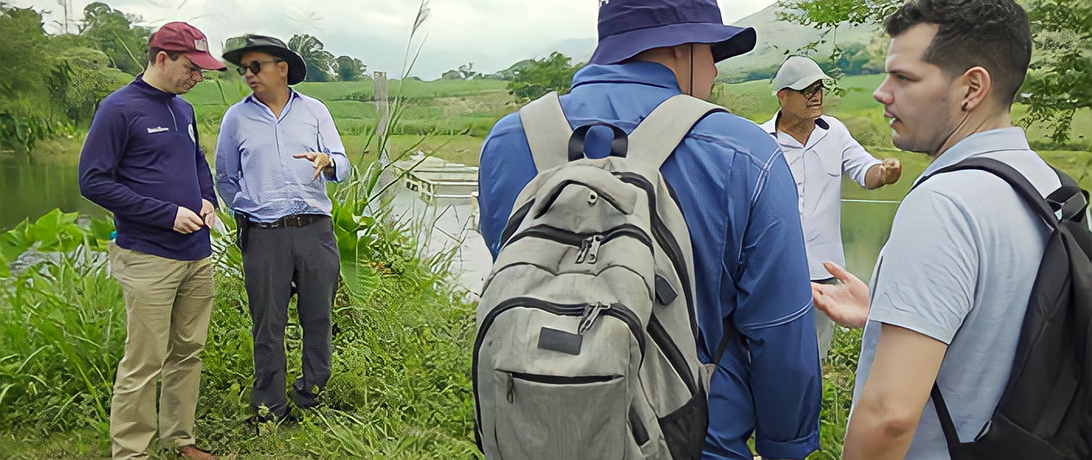
The University of Notre Dame and PASO Colombia work together for the reintegration of ex-combatants and the substitution of crops for illicit use.
Martijn Cremers, the dean of the University of Notre Dame's Mendoza College of Business , along with researchers and students from the Business on the Frontlines MBA (BOTFL) program , visited various locations throughout the country to learn about PASO Colombia's efforts in peacebuilding, as well as to contribute to its growth and impact. Both the BOTFL program and PASO Colombia are interested in creating economic opportunities for ex-combatants and rural communities, through the construction of successful agricultural enterprises.
The alliance between PASO Colombia and the University of Notre Dame began in June 2019. At that time, a BOTFL team carried out an evaluation of the impacts that the Puerto Guzmán Rural Alternative School (ERA) would have on the productive capacities of ex-combatants and the surrounding peasant communities. This alliance now includes an evaluation of the "Payment for Work" and "Market Creation" strategies, used in the Contingency Plan in support of coca eradicating families in 10 municipalities of the country, the creation of training materials to support the implementation such large-scale strategies, and an analysis of Disarmament, Demobilization and Reintegration (DDR) programs in the world, including key ideas for the work of PASO Colombia.
Before the outbreak of COVID-19, both parties developed an agenda that includes visits to the communities where the Alternative Rural Schools (ERAS) and the Contingency Plan have been implemented. However, in support of the efforts to combat the spread of COVID-19 that are currently being implemented in Colombia, as well as to promote the health and safety of communities, visits to ERAs and Contingency Plan sites have been postponed. . The implementation of the partnership between PASO and the University of Notre Dame will be resumed when the risk associated with the COVID-19 pandemic has been adequately reduced.
Article Details
Published
Topic
Program
Content Type
News